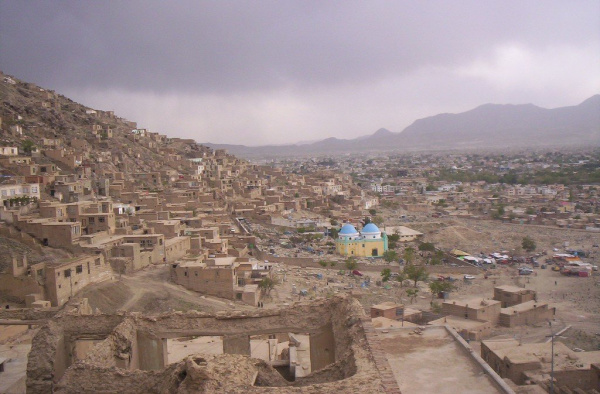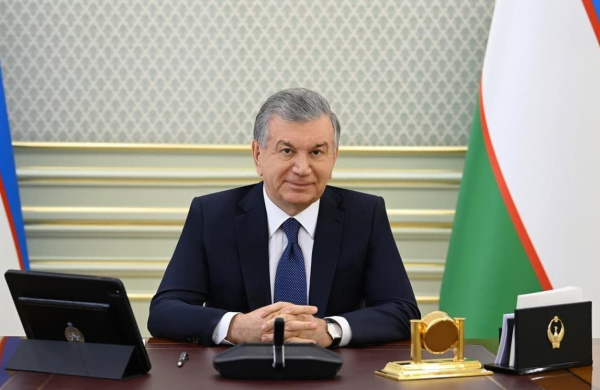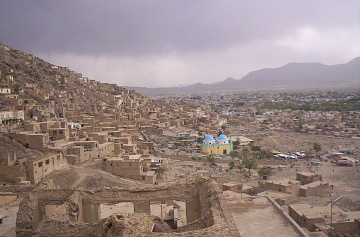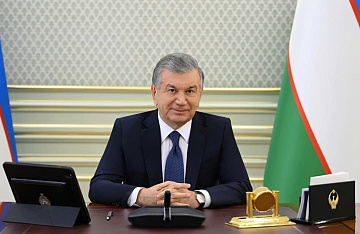Тигран Манасян: The national policy of the present
Автор: ИАЦ МГУ

As it was proven by history, during the existence of humans on theearth, times are changing and we are changing with them. But common to allmankind moral and valuable principles are unchangeable. Unfortunately, only a smallpart of our planet's population has those principles. The problem is- althoughthe culture and moral-ethical standards are close to each other, they belong todifferent categories. A man either is born with certain package of vitalprinciples, or he is born as a destroyer, the one who does not respect others,others' work and even himself. While being taught culture and manners it is notalways possible to change in morale. But with few exceptions, people can changedue to serious education.
The development is possible only ifa person lives in relative prosperity, and the society is prosperous ingeneral… Some modern states have already crossed the line of poverty, andwalked into the era of technologies, and it is obvious that regression andcultural degradation most probably are no threat for them. There are not muchsuch countries, but they are the powerful ones, such as the US, Canada,countries of Western Europe (and some of Eastern European states), some Asiancountries, for example, Japan.
All these states came to theunderstanding of all the advantages of new, completely different policy onnations and peoples. One of the first states that accepted this way was the US,when they created their multi-national and poly-confessional state. As we know,the USis not the country of Anglo-sax people, but it is a state of al the peoplewithout exception, who preferred this country above others. There were timeswhen you could find contradictories in their system (for example, theinstitution of Slavery), but many mistakes have been admitted and corrected bythe USadministration. The main principle of the US is the equal rights of all thepeople: Whites and Blacks, Jews and Muslims, conservatives and socialists. Inother words, the state belongs to all the citizens of the country.
Let's go further. What a wonderfullife was during the Soviet Union, how all thepeople lived in peace before 1991! Most of the Armenians and Azerbaijanis, whoare in their late 40s, will tell you that there was a real friendship betweenpeoples of Caucasus. And never, not in Yerevan nor in Baku,you could see arrogant attitude or discrimination of titled nation towardsnational minorities of the republic. Today, as a result of political games ofsuper powers and some conflicts, those relationships on the post-Sovietterritory became a history, and to correct them will be possible either as aresult of the consensus (which is less probable), or huge propagandisticpolicies have to be implemented by the governments aiming at resolving ofcontradictions on the first-society level. And this is the way-the onlyreliable (although hard and long-term) way to bring people to reconciliation.
The reason for peaceful co-existenceof the people of the USSRwas also the government policy of the Communist Party of the SovietUnion. The core of that policy was not also the creation of one(Russian) people or of a nation consisting of all the nations existing at thattime- but it was the creation of one completely new nation –the Soviet nation. Thismeans that the government realized how dangerously explosive can be nationalconsciousness and people's history. Their power is much stronger than anynuclear or hydrogen bomb, since a person who is inspired by a specific idea, heis ready to go for a lot, even for self-sacrifice to reach his goal.
Over the human history people usedto share things all the time (were sharing almost the same things- soil orliving space and influence). These elements hampered the process of buildingnormal trusting relations among people. On the same ground later appearedextremely nationalistic ideologies, such as Nazism. There is no need to gofurther to see that some people, even Saints had some features of chauvinismand racism. Martin Luther – the founder of one of the main branches ofProtestantism, the founder of more modern and just Christian doctrines was, toput it mildly, didn't like one of the most geographically dispersed people-Jews. In fact, he was a strong anti-Semite, and reading his works, it is easyto prove this. Besides, people started to divide themselves according to confessionalfeatures (for example, Christians-Muslims), which was also the reason for manybloody wars. Up to today, the religion is preventing many people to get closeto each other, who live in different countries. It is impossible to deny allthe positive sides of the existence of religious institutions, they gaveeducation and bread to many in need in Middle Ages and even today many owetheir lives to these organizations. At the same time, the church is deeplyengaged and preconceived which the reason for lateness in comprehensiveprogress and changes. Societies change but the church remains the same, andvery slowly walks with the society. The biggest problem that clergy have- istheir unwillingness to compromise their interests. Christian organizationscan't find a common ground for their rituals, since they don't want it, theydon't want to compromise. But as a result, the people suffer, who are veryreligious, and whether they want it or not, psychologically they dividethemselves on confessional features. And this eventually leads to multipleproblems in communication and business among people of religions.
I believe that the globalization isa process of universal integration and unification, and at the end, whether wewant it or not, will result in gradual merge of all the nations of the planet.This does not mean that the people's cultures will disappear. Just theopposite, in this case everything will become common to all mankind- the music,cuisine, cinema, etc. in fact, there will be a mixture of European and Orientalcultures, of the people of the North and South. I think only the best willremain among different cuisines, clothing, traditions, etc. Don't we see todayItalian restaurants all over the place? It does not mean that the owner isItalian. Is Italian element necessary in this case? Moreover, very often inmany such restaurants you can find dishes fr om other national cuisines.
Now, to avoid looking like an idealistor utopist, I would like to go back to our reality and talk about how thenational policy should work and what kind of mistakes do modern countries make.First of all, it is worth to mention that not all the states realize thenecessity of national policy, since they are not developed enough. Today'sworld can be divided into East and West (not geographically, but based on theirsocio-economic index). This means that the countries that have chosen the Westernway and rest upon on their historical traditions, have pretty good results andwill develop faster than those which still rely on their local traditional andobsolete models. Countries with predominantly Western way realize theimportance of having of a certain policy, which will contribute to peacefulexistence of people of different nationalities, religions on their territory. Thenotion of national policy should include also the economics and all otherfields, but this is a different topic to discuss.
In Europe, or in Japan, for example, it is virtuallyimpossible to see discrimination on national ground. And even if it happens, itwill be punished by even putting a person into a jail, since spreading nationalintolerance is worse than any war.
In the US, for example, there are townswhere the business is conducted in English, but in public places you can hearSpanish, Chinese or other languages. In LosAngeles the majority of the population are Mexicans,then come Whites (English speakers), then Chinese, then Blacks and Armenians. Thisis why the government of the State of Californiapermits the existence of Armenian, Mexican and other stores, restaurants,schools, newspapers, TV channels, magazines, radio stations and so on. Moreover,many subway stations have signs in several languages (English, Spanish, Chineseand Armenian).
This is national policy, when it isnot important what background you come from, it is important how you presentyourself in business. The same attitude towards their own citizens is viewed inmany EU countries (The United Kingdom, Franceand Italy).
Unfortunately, this concept is notreal in Russia,but there are hopes that in the future we will reconsider our position and willcome to certain conclusions. Living in the country where different skin coloror religion might become a reason for a serious conflict, is not pleasant ordesirable for an educated person, who knows all the negative sides of thissituation. In the end, such situation can lead to internationally isolatedsociety and even to civil war.
To avoid problems while nations aremerging, there is a need to:
1) encourage friendship amongnations,
2) constantly advocate tolerance.
It is a hard and tedious work, but it will bear fruit. There are alot of examples in history, when the propaganda destroyed all the barriersbetween the people. For example, in post-war USSR there was a widespread hatredtowards Germans who were associated with Nazis, but several years later afterthe government's work that hatred disappeared and Germans became close friendswith Soviet people. The Soviet Union fully realized all positive sides of mergingof peoples', this is the reason why during the 70 years of Soviet state'sexistence there were no serious conflicts in the country.
Today there are a lot of conflicts on religious and nationalgrounds. The future will bring the human race to gradual merge of all nationsand nationalities, creating one common nation of “Eartheans”. If somebody doesnot like this, and if he is religious, let him turn to religion. Did the firsthuman named Adam have a nationality? Nations were formed much later, whichbecame a negative thing for the whole human history. And if anyone has doubtsabout such future, let them search the history where are lots of examples whenthe whole nations disappeared and new ones appeared in place. How about theFrench who did not even exist before the 9th century? The Frenchnation was formed as a result of merge of three big cultures and people: Gauls,Romans and Germans.
If the nations and religions disappear and some universal and commonthing appears in place, life will become easier for people, since certaincategory of people will have less leverage to manipulate others in their globalgoals. And, as Hegel said, virtue will defeat all human misfortune thanks toabsolute global intellect. We should not sit and do nothing, waiting forchanges. We should go forward, put on more efforts since the future is not theproduct of one, two or several generations- it is the product of severalcenturies. This should not stop us – this should give us more strength tocreate more just social structures, wh ere our children and our children'schildren will live.
Поделиться:







